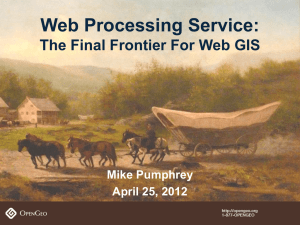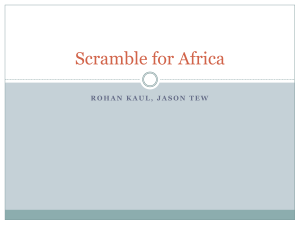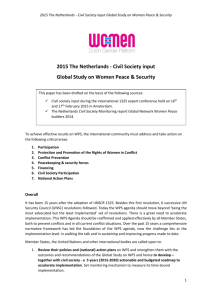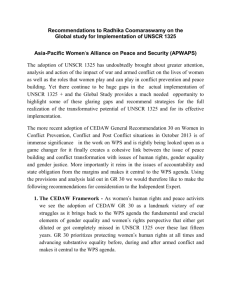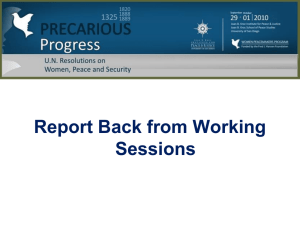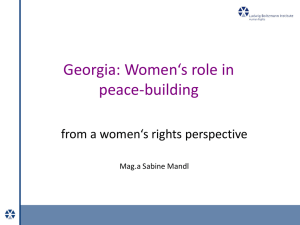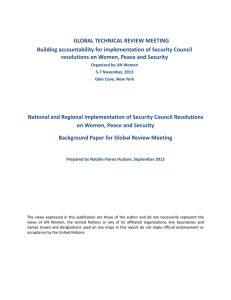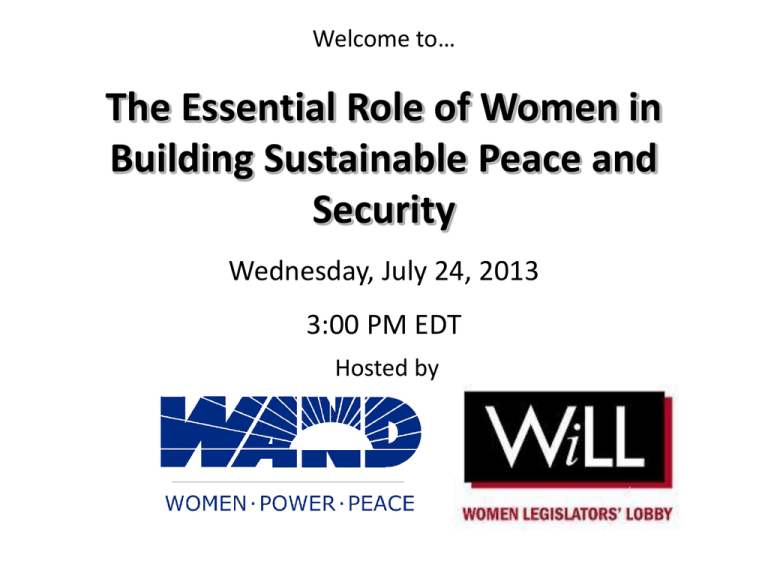
Welcome to…
The Essential Role of Women in
Building Sustainable Peace and
Security
Wednesday, July 24, 2013
3:00 PM EDT
Hosted by
Today
1. Overview: UN SCR 1325 and Women, Peace and Security
Agenda (WPS).
2. U.S. implementation of Women, Peace and Security
policies: (U.S. National Action Plan and WPS Act of
2013)
3. WAND’s WPS Program: Advancing Women’s Global
Leadership
The Hon. Donya Aziz, former Member of Pakistan National
Assembly
CO State Representative Angela Williams.
UN SECURITY COUNCIL RESOLUTION 1325
• Adopted unanimously in October 2000, UN Security Council Resolution
1325 on Women, Peace and Security is a landmark commitment to
women in conflict that seeks to:
– Repair the lack of equal participation of women in peace and postconflict negotiations across the world
– Safeguard women and children wherever conflict erupts
• Resolution 1325 makes it clear that
women’s participation and security is
critical for international peace and
security
• It also provides a groundbreaking policy
and practical framework for women’s
participation in peacebuilding
Why does SCR 1325 and WPS matter
so much?
– There are roughly 40 active conflicts in the world, today.
– More than ½ of all peace agreements fail within the first 10
years.
– Women are grossly underrepresented in peace and conflict
negotiations.
– Of the 40 conflicts in the last decade, 31 represent repeated
cycles of violence with a disproportionate impact on women
and children
“Evidence from around the world and across cultures
shows that integrating women and gender considerations
into peace-building processes helps promote democratic
governance and long-term stability”
(U.S. NAP on Women, Peace, and Security; Dec. 2011)
UN SCR 1325 and WPS Agenda
SCR 1325 plus subsequent resolutions 1820,
1888, 1889, and 1960 make up the
Women, Peace and Security agenda
(WPS).
Countries are more peaceful and
prosperous when women are
accorded full and equal rights and
opportunity.”
Former Sec. of State Clinton
– Follow up resolutions address sexual
violence, women and conflict, and
women’s participation in government
and peace processes.
Resolution 1325 requires UN member states
to develop National Action Plans (NAPs)
that provide for women’s participation in
peace and conflict decision-making; the
protection of women and girls; and
gender training.
How does UN Security Resolution
1325 and the Women, Peace, and
Security apply to the U.S.?
U.S. and the WPS Agenda
Under its Presidency of UN Security Council,
the U.S. introduced 3 out of the 4 follow up
resolutions. (SCR 1820, 1888, 1960).
WPS has had Bi-Partisan political support.
- In 2000, the UN Security Council passed Resolution 1325 with the backing of a
Democratic administration.
- In 2008, a Republican administration sponsored the follow-up UNSCR1820
recognizing rape as a tactic of war and threat to peace and security.
U.S. is a major stakeholder in peace processes.
On October 26, 2010, at the 10th Anniversary of UN Security Council
Resolution 1325, Secretary of State Hillary Rodham Clinton announced the
United States commitment to developing a National Action Plan on Women,
Peace, and Security (U.S. NAP).
Recognizing….
“ The only way to reduce the number of conflicts around the
world, to eliminate rape as a weapon of war, to combat
the culture of impunity for sexual violence, to build
sustainable peace– is to draw on the full contributions of
both men and women in every aspect of peacemaking,
peacekeeping and peace building.”
U.S. Secretary of State, Hilary Rodham Clinton
On December 19, 2011, President Obama issued an executive
order directing the implementation of the United States’ firstever National Action Plan on Women, Peace, and Security.
Joining 35 other countries around the world committed
to advancing the goals of UNSCR 1325 and Women
Peace and Security.
U.S. NAP on WPS: Objectives and
Framework
National Integration
and Institutionalization
of a Gender Responsive
Approach
Participation
in Peace Processes and
Decision-Making
Protection from Violence
Conflict Prevention
Access to Relief and Recovery
The Women, Peace, and Security Act of
2013.
This week Congress will re-introduce the WPS Act.
A BILL
To ensure that the United States promotes women's
meaningful inclusion and participation in mediation
and negotiation processes undertaken in order to
prevent, mitigate, or resolve violent conflict and
implements the United States National Action Plan on
Women, Peace, and Security.
Be it enacted by the Senate and House of Representatives of the United States of America in
Congress assembled,
Grass Tops
• How does WAND’s work advance the
Women, Peace and Security Agenda?
Grass Roots
WAND’s Women, Peace, and Security (WPS)
Program leverages the work and resources of
WAND, our grassroots organization and WiLL
our network of nearly 700 women state and
federal legislators to ensure that women are
at the tables of power where decisions are
made concerning U.S. engagement on matters
of peace and security.
The goals of WAND’s WPS work
are:
Strengthen and promote the role of women as
agents of change in political life, conflict
prevention, and peace-building,
Ensure effective implementation of the U.S.
WPS Agenda as directed by the United States’
National Action Plan on Women, Peace, and
Security, (NAP) and its accompanying
Executive Orders.
WAND’s WPS Program 5 Project
Areas include:
U.S. NAP on Women, Peace and Security
Promoting Women’s Security and Rights in Afghanistan
WPS Clearing House: Tool-Kits and Policy Resources
UN and SCR 1325
WAND/EastWest Institute Partnership: Advancing
Women’s Global Leadership;
Advancing Global Women Leaders
Project: Ankara, Turkey May 2013
The Honorable Donya Aziz
Former Member
National Assembly of Pakistan
The Honorable Angela Williams
Representative, District 7
Colorado General Assembly
What can you do?
As a concerned citizen, what can you do to advance the Women, Peace
and Security Agenda ?
1. Call or write your Representatives and tell them to support the WPS Act
of 2013 to make the U.S. National Action Plan law!
2. Call or write your Representatives and tell them that we must protect and
promote Afghan women rights following the expedited withdrawal of U.S.
troops from Afghanistan!
3. Support women’s organizations that strengthen and promote the role of
women as leaders and agents of change in political life, conflict
prevention, and peace-building
Thank You!!
Please contact us for more information:
WAND National Office
691 Massachusetts Ave, Arlington, MA 02476 | 781-643-6740
WAND/WiLL Washington, DC
322 4th St. NE, Washington, DC 20002 | 202-544-5055
WAND Atlanta
250 Georgia Ave. Ste 202, Atlanta, GA 30312 | 404-524-5999
www.wand.org
www.willwand.org

